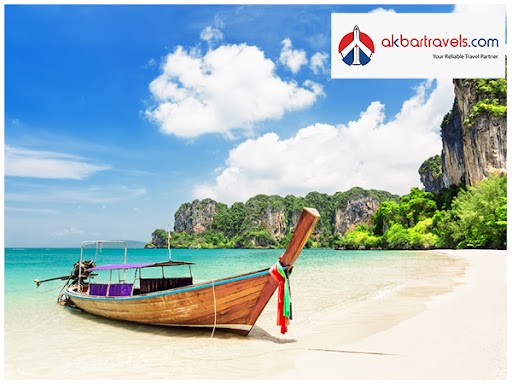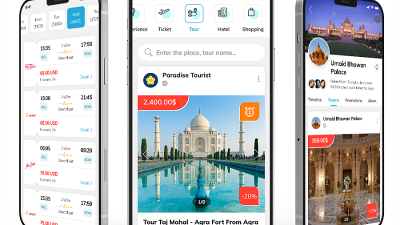In an increasingly interconnected world, the significance of efficient transport networks cannot be understated. The India-Myanmar-Thailand Trilateral Highway stands as a shining testament to the power of collaboration and connectivity. With its completion on the horizon, this ambitious project is set to revolutionize trade, tourism, and cultural exchange in the region. Let us take a quick round-up of the current developments and comprehend the immense potential they hold.
The trilateral highway, stretching over 1,400 kilometers, will connect the Indian city of Moreh in Manipur to Thailand’s Mae Sot via Myanmar. This visionary project aims to establish seamless connectivity and bolster economic cooperation between India, Myanmar, and Thailand. It is not merely a road; it symbolizes the convergence of nations, cultures, and aspirations.
As we delve into the progress made so far, we find ourselves on the cusp of a transformative moment. Reports reveal that the highway is nearing completion, with substantial sections already operational. The Indian government has been actively involved in developing the Indian portion of the highway, and the ongoing construction work is progressing swiftly. This progressive momentum indicates the shared commitment and dedication of all three nations involved. The highway will result in travel to Southeast Asia by land, giving an unprecedented boost to trade, tourism, education, and the health sectors in these three countries.
The benefits of the trilateral highway extend beyond mere infrastructure development. It holds immense promise for trade and commerce in the region. Once completed, it will significantly reduce travel time and costs, opening up new avenues for businesses to thrive. With the highway acting as a crucial trade route, it is expected to boost bilateral trade between India and Southeast Asian countries, including Thailand. This development is poised to foster economic growth and create countless employment opportunities, benefiting all three nations.
However, the trilateral highway’s impact goes beyond economic ties; it paves the way for enhanced cultural exchanges and tourism. Thailand, a popular tourist destination, has been eyeing the Indian market to bolster its tourism sector. As per reports, Thailand is targeting two million Indian tourists in 2023, the same number as pre-pandemic levels. With the completion of the trilateral highway, traveling from India to Thailand will become more accessible and hassle-free. This increased connectivity will undoubtedly attract more Indian tourists, fostering a deeper understanding and appreciation of the rich cultural heritage of both countries.
The highway’s potential to improve people-to-people connections cannot be overstated. It will enhance cross-border cooperation, enabling individuals to explore new horizons and forge lasting friendships. The exchange of ideas, knowledge, and skills will further strengthen the
Bonds between India, Myanmar, and Thailand, leading to a more harmonious and prosperous region.
Moreover, the trilateral highway project aligns with India’s Act East Policy, which seeks to enhance engagement with Southeast Asian nations. It is a testament to India’s commitment to regional integration, fostering mutual understanding, and facilitating cooperation. This project underscores India’s role as a reliable partner in promoting connectivity and development in the region.
While the progress made on the India-Myanmar-Thailand Trilateral Highway is commendable, there are still challenges that need to be addressed. Coordination between the three nations, along with seamless customs and immigration processes, will be crucial to ensuring the smooth flow of goods and people. Additionally, efforts must be made to address environmental concerns and minimize the ecological impact of the project.
As we eagerly await the completion of this monumental undertaking, it is imperative to acknowledge the tireless efforts of all the stakeholders involved. The trilateral highway project showcases the power of collaboration and the determination to overcome geographical barriers. It represents a bridge between nations, fostering economic growth, cultural exchanges, and mutual understanding.
In conclusion, the India-Myanmar-Thailand Trilateral Highway is not merely a road but a symbol of hope, progress, and unity. With its completion on the horizon, we stand at the precipice of a new era of connectivity, trade, and cultural exchange. As the wheels of progress continue to turn, let us embrace this transformative journey and celebrate the seamless connectivity that awaits us on this extraordinary highway.
While India and Thailand already have good connectivity through the airways, travelers planning a trip from India to Thailand can approach a trusted travel agency like Akbar Travels to book their Mumbai to Bangkok flight tickets. In addition to offering cheap flight tickets to Thailand, this agency also offers a faster and hassle-free Thailand Visa online service for Indians. The online application process ensures you get your Thailand Visa online in just 24 hours*. They make your journey convenient, enjoyable, and budget-friendly with their reliable services and affordable tour packages.




